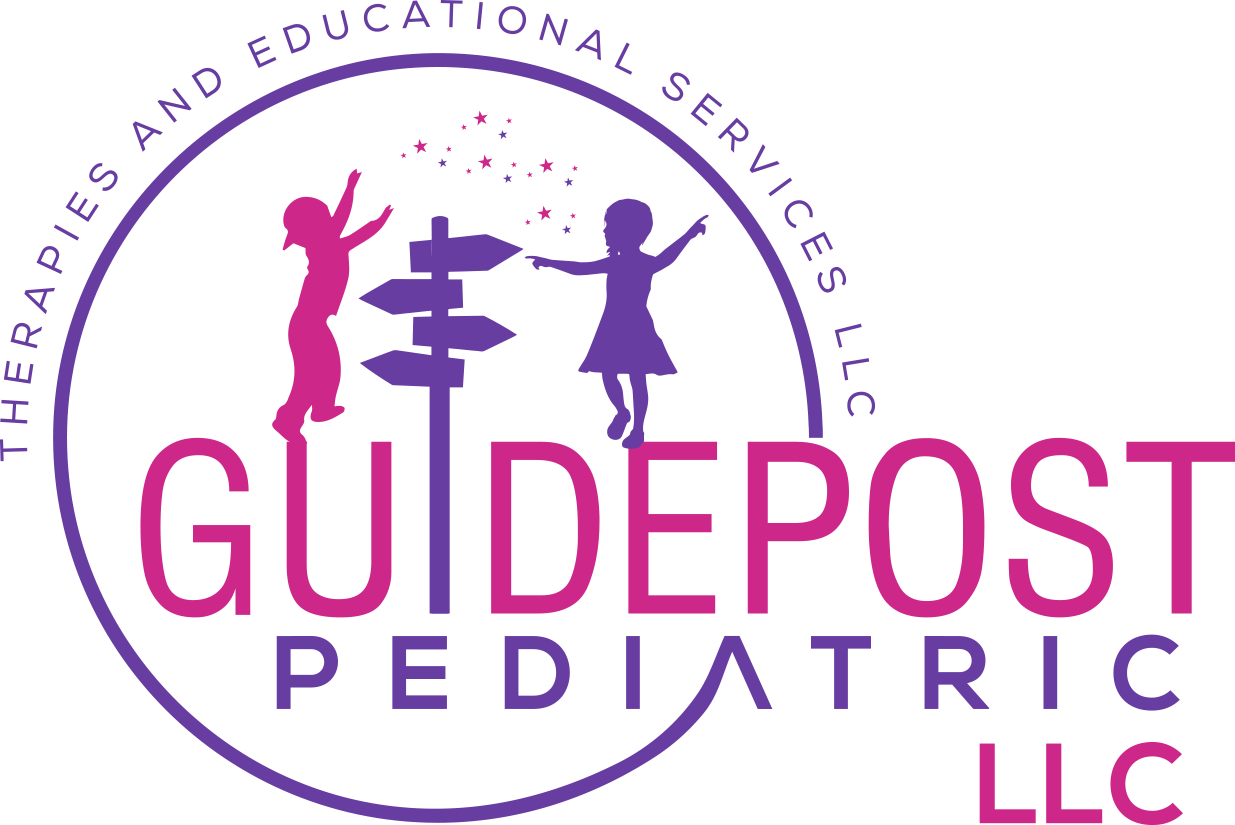
Pediatric Speech Therapy
Pediatric speech therapy is a specialized field dedicated to helping our youngest family members communicate effectively.
Pediatric speech therapy can help improve many aspects of a child’s life through improvements in their social skills, cognitive development, their ability to read and write, language acquisition and understanding. When children have the appropriate tools to communicate their needs, we see dramatic improvements in their overall confidence, their resilience and other daily challenges.
Guidepost offers comprehensive speech and language assessments, including thorough evaluations for Dyslexia. Our pediatric speech therapists are professionally trained for early intervention, childhood apraxia, expressive and receptive language delays, auditory and language processing issues and oral motor therapy.
Through a holistic multi-disciplinary approach, Guidepost pediatric speech therapists work with children and parents to address the unique needs of every child. By using purposeful and engaging therapies and activities, our pediatric speech therapists facilitate skill development and empower children to navigate their world with confidence.
Contact us today to learn more about the world of pediatric speech therapy.
Benefits of Guidepost Pediatric Speech Therapy
Our speech-language pathologists offer treatment programs specifically designed to treat all aspects of communication. Pediatric speech therapy can assist with your child’s first words, their ability to socialize and interact with peers. Pediatric speech-language therapy can benefit children with conditions including:
Apraxia of speech - a disorder causing limited and difficulty speech
Articular and phonological disorders - difficulty producing sounds and reading aloud
Auditory processing disorders
Autism spectrum disorders - can cause difficulties with social communication and behavior
Cognitive and attention impairments, including those associated with traumatic brain injury
Craniofacial abnormalities - includes cleft lip and palate
Delayed speech milestones
Fluency disorders - such as stuttering
Genetic syndromes - such as Down syndrome (which can cause developmental and intellectual delays)
Hearing impairments
Listening skills
Neurological disorders - includes cerebral palsy, stroke and traumatic brain injury
Reasoning and memory skills
Receptive and expressive language disorders
Social pragmatic communication disorders





